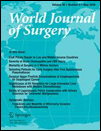Retrospective Analyses of Esophageal Bypass Surgery for Patients with Esophagorespiratory Fistulas Caused by Esophageal Carcinomas
Abstract
Background
Esophagorespiratory fistula (ERF) caused by esophageal carcinoma is a fatal complication. In our institution, esophageal bypass surgery has been indicated when possible. We herein retrospectively describe the clinical results of esophageal bypass surgery for ERF.
Patients and methods
Between April 2001 and March 2015, 20 patients with ERF underwent esophageal bypass surgery. For these patients, the clinical safety, validity, and effectiveness of esophageal bypass surgery were examined and compared with the results of bypass surgery without ERF.
Results
Eight patients developed ERF at the initial diagnosis, while 10 patients developed ERF during and after chemoradiotherapy. Postoperative complications such as pneumonia, surgical site infection, and anastomotic leakage developed in 12, 5, and 1 patient, respectively. All the patients could eat solid foods at a median of 9 postoperative days. Two patients died within 30 days after the operation and 1 patient developed in-hospital death. Fourteen patients received chemo(radio)therapy after the operation. The median overall survival was 244 days and the one-year and three-year overall survival rates were 45.7 and 15.3 %, respectively. There was no significant difference in terms of the intraoperative findings, postoperative morbidities, and short-term and long-term clinical results between the two groups.
Conclusion
Esophageal bypass surgery for ERF is not considered to be highly invasive or risky compared with bypass surgery without ERF. After the operation, respiratory symptoms caused by ERF may improve and oral intake can be achieved. Esophageal bypass surgery should therefore be aggressively performed for patients with a tolerable performance status.




